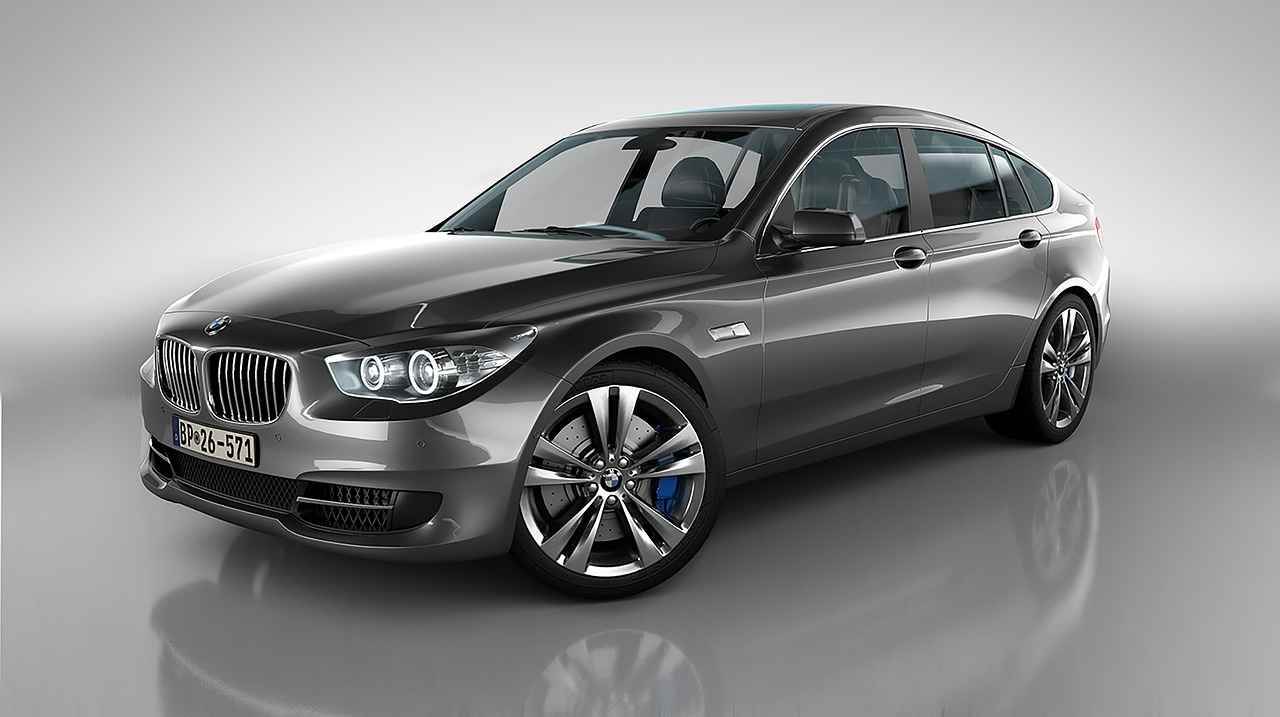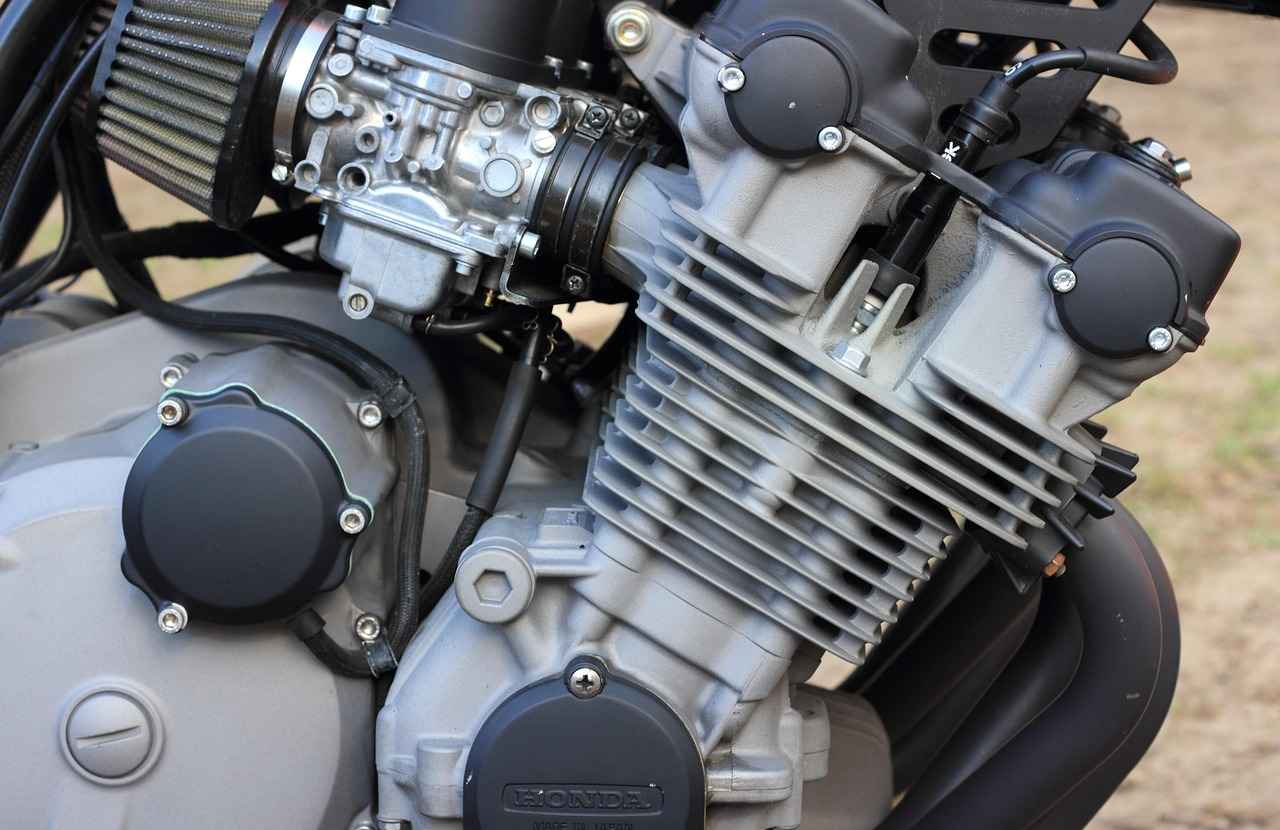The Honda Accord has long been a favorite among sedan enthusiasts, known for its reliability, comfort, and performance. In recent years, the introduction of all-wheel drive (AWD) has raised questions about the Accord’s capabilities in varied driving conditions. This article delves into the AWD features of the Honda Accord, answering common queries and comparing its performance with other vehicles in its class.
All-wheel drive (AWD) refers to a system that distributes power to all four wheels of a vehicle. This enhances traction and stability, especially in challenging weather conditions like rain or snow. Understanding how AWD operates is essential for evaluating its benefits in everyday driving scenarios.
Traditionally, the Honda Accord has been equipped with front-wheel drive (FWD). However, recent model years have introduced AWD options, allowing drivers to experience improved traction and control. This shift caters to those who desire enhanced performance in diverse driving conditions.
Opting for AWD in a sedan like the Honda Accord brings several advantages:
- Improved Handling: AWD systems enhance cornering and stability.
- Better Performance: Ideal for inclement weather, providing confidence on slippery roads.
- Increased Versatility: Suitable for various driving conditions, from urban streets to rural paths.
When comparing AWD and FWD in the Honda Accord, several key differences emerge:
- Handling: AWD offers superior grip, especially in adverse conditions.
- Fuel Efficiency: FWD typically provides better mileage compared to AWD.
- Performance: AWD enhances acceleration and stability during inclement weather.
The AWD system in the Honda Accord significantly boosts performance. By improving grip and cornering capabilities, it becomes a reliable choice for navigating slippery surfaces. Drivers often report a noticeable difference in confidence when driving in rain or snow.
While the AWD system offers enhanced traction, it can impact fuel efficiency. Understanding how AWD affects gas mileage is crucial for potential buyers. Generally, vehicles equipped with AWD may experience a slight decrease in fuel economy compared to their FWD counterparts.
Not all Honda Accord models come with AWD. To make informed decisions, buyers should identify which trims and model years offer this feature. Recent models have made AWD more accessible, catering to a broader audience.
When evaluating AWD options, comparing the Honda Accord to competitors like the Subaru Legacy and Toyota Camry is essential. Each vehicle presents unique features and performance metrics, allowing buyers to make informed choices based on their specific needs.
User reviews and testimonials provide valuable insights into the real-world performance of the Honda Accord AWD. Many owners appreciate the enhanced stability and handling, particularly in challenging weather conditions, while others weigh in on the trade-offs regarding fuel efficiency.
Maintaining an AWD system requires specific care. Regular maintenance checks, including fluid changes and tire rotations, are essential to keep the system functioning optimally. Understanding these needs can help owners avoid costly repairs down the line.
As automotive technology continues to evolve, the future of AWD in the Honda Accord may see further advancements. Potential developments could include improved efficiency and enhanced performance features, making AWD an even more attractive option for buyers in the coming years.

What is AWD and How Does it Work?
Understanding all-wheel drive (AWD) is essential for anyone looking to evaluate vehicle performance accurately. This drivetrain technology allows for power distribution to all four wheels, significantly enhancing a vehicle’s traction and stability. This is particularly beneficial in adverse weather conditions, such as rain, snow, or icy roads, where maintaining control can be challenging.
AWD systems come in various configurations, but the primary function remains the same: to provide improved grip on the road. By sending power to both the front and rear wheels, AWD systems help prevent wheel slippage, allowing for smoother acceleration and better handling. This is a stark contrast to two-wheel drive (2WD) systems, which only power either the front or rear wheels.
There are generally two types of AWD systems: full-time and part-time. Full-time AWD systems constantly distribute power to all wheels, ensuring maximum traction at all times. Part-time systems, on the other hand, engage the rear wheels only when needed, such as during slippery conditions. This flexibility can enhance fuel efficiency while still providing the necessary support when conditions worsen.
In addition to improving traction, AWD can also enhance a vehicle’s performance during cornering. By distributing power effectively, AWD systems can help reduce understeer and oversteer, allowing for a more controlled driving experience. This is particularly important for sedans like the Honda Accord, where driving dynamics play a crucial role in the overall experience.
Furthermore, AWD systems can vary significantly between manufacturers. Some may offer advanced features such as torque vectoring, which allows for even more precise control of power distribution between the wheels. This technology can enhance both performance and safety, making it a valuable consideration for potential buyers.
When evaluating the benefits of AWD, it’s also essential to consider the potential drawbacks. One common concern is the impact on fuel efficiency. AWD systems can add weight and complexity, which may lead to lower gas mileage compared to their 2WD counterparts. Buyers should weigh these factors when deciding if AWD is the right choice for their driving needs.
In summary, understanding AWD is crucial for evaluating a vehicle’s performance, particularly in challenging driving conditions. By distributing power to all four wheels, AWD systems enhance traction, stability, and overall driving dynamics. However, potential buyers should also consider the implications for fuel efficiency and maintenance when choosing a vehicle equipped with this technology.
- Improved Traction: Essential for rainy or snowy conditions.
- Enhanced Stability: Reduces the risk of skidding.
- Better Performance: Offers superior handling during turns.
- Fuel Efficiency: May be lower compared to 2WD vehicles.
As technology continues to evolve, the future of AWD systems looks promising, with advancements likely to improve efficiency and performance even further. For drivers in search of a reliable and capable vehicle, understanding the intricacies of AWD can be a game-changer.

Does the Honda Accord Offer AWD Options?
The Honda Accord has long been a staple in the sedan market, celebrated for its reliability, comfort, and performance. Traditionally, the Accord has been equipped with front-wheel drive (FWD), which has served many drivers well. However, with changing consumer preferences and the growing demand for enhanced traction, Honda has introduced all-wheel drive (AWD) options in recent models. This article delves into the specifics of Honda Accord’s AWD offerings and what they mean for potential buyers.
AWD systems are designed to distribute power to all four wheels of a vehicle, improving traction and stability under various driving conditions. This is particularly beneficial in rainy, snowy, or icy environments, where enhanced grip can significantly enhance safety and performance. Many drivers appreciate the added confidence that comes with an AWD system, especially when navigating challenging road conditions.
While the Honda Accord has primarily featured FWD in its history, recent iterations have expanded the lineup to include AWD options. This shift caters to a growing demographic of drivers who prioritize traction and control in their vehicles. The AWD system in the Accord is engineered to provide a seamless transition between FWD and AWD, ensuring optimal performance without sacrificing fuel efficiency.
Opting for AWD in a sedan like the Honda Accord can deliver numerous advantages. Some key benefits include:
- Improved Handling: AWD enhances cornering capabilities and stability, especially on slippery surfaces.
- Year-Round Confidence: Drivers can navigate through various weather conditions with greater assurance.
- Performance Boost: The AWD system can improve acceleration and overall vehicle performance.
When comparing the AWD and FWD options in the Honda Accord, several factors come into play:
- Handling: AWD typically offers superior handling in adverse conditions compared to FWD.
- Fuel Efficiency: FWD models tend to be more fuel-efficient due to less weight and complexity.
- Cost: AWD models may come at a premium, impacting the overall purchase price.
The AWD system in the Honda Accord significantly enhances its performance, particularly in challenging weather. By distributing power to all four wheels, the Accord can maintain better grip and cornering capabilities, making it a reliable choice for diverse driving conditions. This feature is especially appealing for those living in regions with harsh winters or frequent rain.
While the AWD system provides enhanced traction, it may also affect fuel efficiency. Generally, vehicles equipped with AWD tend to consume more fuel than their FWD counterparts due to the additional weight and complexity of the drivetrain. Prospective buyers should consider their driving habits and the typical conditions they encounter to determine if the benefits of AWD outweigh the potential increase in fuel costs.
Not every Honda Accord model comes with AWD. It is essential for buyers to identify which trims and years offer this feature. Recent models, particularly those released in the last few years, are more likely to include AWD options, expanding choices for drivers who need this capability.
When considering AWD options, it is helpful to compare the Honda Accord to similar vehicles in its class, such as the Subaru Legacy and Toyota Camry. Both competitors offer AWD systems, but they differ in performance characteristics, pricing, and features. Understanding these differences can aid buyers in making informed decisions based on their specific needs and preferences.
User reviews and testimonials can provide valuable insights into the real-world performance of the Honda Accord AWD. Many owners report improved handling and confidence in various weather conditions, while some express concerns about fuel efficiency. These perspectives can help potential buyers gauge whether the AWD system aligns with their driving expectations.
Maintaining an AWD system requires specific care and attention. Regular maintenance checks are crucial to ensure the system operates smoothly and efficiently. Understanding maintenance needs and potential costs can help owners keep their vehicles in optimal condition.
As automotive technology continues to advance, the future of AWD in the Honda Accord may see further enhancements. Buyers can look forward to potential developments that could improve performance, fuel efficiency, and overall driving experience, making the Accord an even more attractive option in the sedan market.

Why Choose AWD in a Sedan?
The decision to opt for an all-wheel drive (AWD) system in a sedan can significantly influence your driving experience. This article delves into the benefits of choosing AWD, particularly in models like the Honda Accord, which traditionally offers front-wheel drive (FWD) but has recently introduced AWD options.
- Improved Handling: One of the most significant advantages of AWD is its ability to enhance handling. By distributing power to all four wheels, AWD systems provide better traction during cornering, allowing for a more stable and controlled driving experience.
- Enhanced Performance in Adverse Weather: AWD excels in rain or snow, making it a great choice for drivers in regions with varying climates. The system helps prevent wheel spin and maintains grip on slippery surfaces, ensuring safer driving.
- Increased Driver Confidence: With AWD, drivers can feel more confident navigating challenging conditions. This added assurance can be especially beneficial for those who frequently encounter hilly terrains or unpredictable weather.
Safety is a paramount concern for any driver, and AWD contributes significantly to vehicle safety. The system’s ability to distribute power effectively helps prevent skidding and loss of control, particularly during sudden stops or sharp turns. This feature is crucial for families and individuals who prioritize safety in their vehicle choices.
While AWD offers numerous advantages, it’s essential to consider potential drawbacks. One notable aspect is fuel efficiency. AWD systems can add weight and complexity, potentially leading to lower gas mileage compared to FWD vehicles. Additionally, the maintenance of AWD systems may require more attention and resources, making it crucial for buyers to factor in long-term costs.
Drivers in regions with harsh winters or frequent rain should strongly consider AWD for its enhanced traction and stability. Additionally, those who enjoy driving on off-road trails or unpaved roads will find that AWD provides the necessary power and control to navigate challenging terrains effectively.
When comparing AWD to other drivetrains, such as FWD or rear-wheel drive (RWD), it’s important to understand the specific benefits each system offers. FWD provides excellent fuel efficiency and is generally less expensive to maintain. However, for those who prioritize performance and safety in diverse driving conditions, AWD stands out as the superior option.
In summary, choosing an AWD sedan like the Honda Accord can provide numerous benefits, from improved handling and performance in adverse weather to increased driver confidence. While there are some drawbacks, the advantages often outweigh them for many drivers. Understanding these factors can help you make an informed decision about whether AWD is the right choice for your driving needs.

Honda Accord AWD vs. FWD: What’s the Difference?
The Honda Accord is a popular choice among sedan enthusiasts, offering a blend of reliability, comfort, and performance. One of the significant decisions potential buyers face is whether to choose the all-wheel drive (AWD) or front-wheel drive (FWD) variant. Understanding the differences between these two drivetrains can significantly influence your driving experience and satisfaction.
- Power Distribution: AWD systems distribute power to all four wheels, providing enhanced traction and stability. In contrast, FWD systems send power only to the front wheels, which can be adequate for most driving conditions.
- Handling: The AWD system in the Honda Accord offers superior handling, especially in adverse weather conditions. This feature allows for better cornering and grip on slippery surfaces, making it a safer option for those who frequently drive in rain or snow.
- Fuel Efficiency: Generally, FWD vehicles tend to be more fuel-efficient than their AWD counterparts. The added weight and complexity of the AWD system can lead to slightly reduced fuel economy, which is an essential consideration for cost-conscious buyers.
When it comes to performance, the AWD system in the Honda Accord excels in providing a more confident driving experience. The ability to engage all four wheels means that power is more effectively utilized, particularly during acceleration. This is especially noticeable when navigating through challenging terrains or during inclement weather.
On the other hand, the FWD variant is lighter, which can lead to better fuel efficiency under normal driving conditions. It is often more than sufficient for urban driving and day-to-day commutes, making it a practical choice for many drivers.
If you live in an area with harsh winters or frequently encounter wet or slippery roads, the AWD Honda Accord may be the better choice for you. The added traction and stability can provide peace of mind and enhance your overall driving experience. Conversely, if you primarily drive in fair weather conditions and prioritize fuel efficiency, the FWD model may better suit your needs.
While AWD models typically come at a premium compared to FWD variants, potential buyers should weigh this cost against the benefits of improved traction and handling. Additionally, consider the long-term fuel costs associated with AWD versus FWD. If you often face challenging driving conditions, the investment in AWD may pay off in safety and confidence behind the wheel.
User reviews highlight the differences in driving experiences between AWD and FWD models. Many AWD drivers report feeling more secure during adverse weather, while FWD owners appreciate the lower operating costs. Personal experiences can vary widely, so it’s essential to test drive both options to determine which aligns best with your driving style.
Ultimately, the choice between the Honda Accord AWD and FWD comes down to your specific driving needs and preferences. By considering factors such as handling, fuel efficiency, and your typical driving conditions, you can make an informed decision that enhances your overall driving experience.
Performance and Handling of Honda Accord AWD
The Honda Accord has long been recognized for its blend of style, comfort, and performance. One of the standout features in recent models is the introduction of an All-Wheel Drive (AWD) system, which significantly enhances the vehicle’s performance and handling capabilities. This article delves into the intricacies of the AWD system in the Honda Accord, spotlighting its advantages in various driving conditions.
The AWD system in the Honda Accord is designed to provide optimal traction and stability. By distributing power to all four wheels, it allows for improved grip, especially on slippery surfaces such as wet roads or snow-covered paths. This feature is particularly beneficial for drivers who encounter diverse weather conditions, as it enhances both cornering capabilities and overall vehicle control.
One of the most notable benefits of the AWD system is its ability to maintain performance on slippery surfaces. The system intelligently monitors road conditions and adjusts power distribution to the wheels that need it most. This results in:
- Better acceleration: AWD allows for quicker starts, reducing wheel spin and enhancing take-off speed.
- Improved cornering: With power sent to all four wheels, the Accord maintains stability during turns, making it less likely to skid.
- Increased confidence: Drivers can feel more secure navigating through challenging conditions, knowing that their vehicle is equipped to handle them.
When comparing the AWD system to traditional Front-Wheel Drive (FWD), the differences become evident. While FWD provides adequate traction in most conditions, it may struggle in severe weather scenarios. The AWD system, on the other hand, offers:
- Superior handling: The distribution of power enhances the vehicle’s responsiveness, particularly in adverse conditions.
- Versatility: AWD is beneficial not just in winter but also during rainy seasons, ensuring year-round reliability.
Owners of the Honda Accord with AWD often share positive experiences regarding its performance. Many highlight the peace of mind they feel when driving in inclement weather. The feedback indicates that the AWD system not only meets but exceeds expectations in terms of handling and safety.
While the AWD system enhances performance, it’s important to consider its impact on fuel efficiency. Generally, AWD vehicles may consume slightly more fuel than their FWD counterparts due to the added weight and complexity of the system. However, advancements in technology have minimized this difference, making the AWD Honda Accord a competitive choice for those prioritizing both performance and efficiency.
Maintaining an AWD system requires specific attention. Regular maintenance checks, including fluid changes and tire rotations, are essential to ensure the system functions optimally. Owners should consult their vehicle’s manual for detailed maintenance schedules to avoid potential issues down the line.
As automotive technology continues to evolve, the future of AWD in the Honda Accord looks promising. Innovations in electronic control systems and hybrid technology may further enhance the performance and efficiency of AWD systems in upcoming models, making them even more appealing to prospective buyers.
Fuel Efficiency in Honda Accord AWD
The Honda Accord has long been a favorite in the sedan market, known for its balance of performance, comfort, and fuel efficiency. With the introduction of All-Wheel Drive (AWD) in certain models, many potential buyers are curious about how this feature affects overall fuel economy. Understanding the relationship between AWD and fuel efficiency is essential for those considering the long-term costs associated with their vehicle choice.
Fuel efficiency refers to how far a vehicle can travel on a specific amount of fuel, typically measured in miles per gallon (MPG). Higher fuel efficiency means lower fuel costs and a reduced environmental impact, making it a critical factor for many car buyers.
While AWD systems enhance traction and stability, particularly in challenging weather conditions, they can also lead to increased fuel consumption. This is primarily due to the added weight and complexity of the AWD system, which requires more energy to operate.
- Weight: AWD systems add weight to the vehicle, which can negatively impact MPG.
- Drivetrain Loss: Power is distributed to all four wheels, leading to increased drivetrain losses compared to front-wheel drive (FWD) systems.
- Driving Conditions: AWD can be beneficial in adverse conditions, allowing for better control and safety, but it may also lead to less efficient driving habits.
When comparing the fuel efficiency of the Honda Accord AWD to its FWD counterpart, it’s essential to note that FWD models typically achieve better MPG ratings. For instance, while the AWD model may average around 25 MPG in the city and 34 MPG on the highway, the FWD variant often reaches up to 30 MPG in the city and 38 MPG on the highway. This difference can be significant for buyers focused on long-term savings.
Many Honda Accord AWD owners report varying experiences with fuel efficiency. Some appreciate the improved traction and handling, particularly in winter conditions, while others express concern over the trade-off in gas mileage. User reviews often highlight the importance of considering personal driving habits and typical road conditions when evaluating the AWD option.
- Regular Maintenance: Keeping your vehicle well-maintained can help optimize fuel efficiency.
- Driving Habits: Adopting smoother driving habits, such as gradual acceleration and braking, can enhance MPG.
- Tire Pressure: Ensuring tires are properly inflated can significantly affect fuel consumption.
In summary, while the Honda Accord AWD offers enhanced traction and stability, it does come with trade-offs in fuel efficiency. Potential buyers should weigh these factors based on their driving needs and preferences. Understanding the implications of choosing AWD versus FWD will ultimately help in making an informed decision that aligns with both budget and lifestyle.

Which Honda Accord Models Feature AWD?
The Honda Accord has long been a popular choice among sedan enthusiasts, known for its reliability, comfort, and performance. However, one of the key features that potential buyers often inquire about is whether the Accord offers all-wheel drive (AWD). Understanding which Honda Accord models come equipped with AWD can significantly influence purchasing decisions, particularly for those living in regions with challenging weather conditions.
While the Honda Accord has predominantly featured front-wheel drive (FWD) in its lineup, recent years have seen the introduction of AWD options in select trims. This change caters to a growing demand for enhanced traction and stability, particularly among buyers who prioritize performance in adverse weather conditions.
To make an informed decision, it’s essential to identify which specific trims and model years of the Honda Accord offer AWD. As of the latest models, the Honda Accord Sport and Honda Accord Touring trims have been known to provide AWD options, especially in the 2022 and 2023 model years. These trims are designed to deliver a more dynamic driving experience, ensuring that drivers can maintain control on slippery or uneven surfaces.
- Enhanced Traction: AWD systems distribute power to all four wheels, providing better grip on wet or icy roads.
- Improved Handling: The added stability from AWD can enhance cornering capabilities, making for a more enjoyable driving experience.
- Increased Confidence: Drivers can feel more secure knowing their vehicle is equipped to handle various driving conditions.
When considering an AWD Honda Accord, it’s helpful to compare it with competitors in the market. For example, the Subaru Legacy comes standard with AWD across all trims, making it a formidable alternative for those who prioritize all-weather capability. Additionally, the Toyota Camry has also introduced AWD options, which can be compared in terms of performance, fuel efficiency, and features.
User reviews highlight the advantages of having AWD in the Honda Accord. Many owners report feeling more secure during winter months and appreciate the vehicle’s handling in rain-soaked conditions. However, some also note that the AWD variant may come at a slightly higher price point and may impact fuel efficiency compared to FWD models.
Owning an AWD vehicle does require some additional maintenance considerations. Regular checks of the AWD system, including the transfer case and differential fluids, are necessary to ensure optimal performance. Being proactive about maintenance can help prevent costly repairs down the line.
In summary, while not all Honda Accord models come with AWD, recent trims have embraced this feature, providing options for those who seek enhanced performance and stability. By understanding the specific trims and model years that offer AWD, potential buyers can make informed decisions tailored to their driving needs.

How Does Honda Accord AWD Compare to Competitors?
When considering the Honda Accord AWD, it’s essential to evaluate how it stands against its competitors, particularly the Subaru Legacy and Toyota Camry. Each of these vehicles offers unique features and capabilities, making them worthy of comparison for potential buyers.
The Subaru Legacy is renowned for its standard all-wheel drive across all trim levels, providing consistent traction and stability. In contrast, the Honda Accord’s AWD is available in select models, which may appeal to drivers who desire flexibility in their vehicle choice. When it comes to performance, the Legacy offers a rugged feel, particularly in adverse weather conditions, thanks to its Symmetrical AWD system. On the other hand, the Honda Accord AWD provides a more refined driving experience, focusing on comfort and handling.
The Toyota Camry also presents an AWD option, enhancing its appeal in the competitive sedan market. While the Accord is known for its spacious interior and advanced technology features, the Camry boasts a user-friendly infotainment system and a suite of safety features. Both vehicles offer similar engine options, but the Accord tends to emphasize fuel efficiency, making it a better choice for those prioritizing mileage without sacrificing power.
Pricing is a significant factor when comparing the Honda Accord AWD, Subaru Legacy, and Toyota Camry. The base model of the Subaru Legacy typically starts lower than the Accord, which may attract budget-conscious consumers. However, the Honda Accord’s higher trims, equipped with AWD, justify their price through premium features and performance enhancements. The Camry, while competitive, often hovers in a similar price range to the Accord, offering comparable features but with a different driving experience.
Feedback from current owners of the Honda Accord AWD, Subaru Legacy, and Toyota Camry highlights distinct preferences. Many Accord owners appreciate its smooth ride and spacious interior, while Subaru drivers often cite the confidence inspired by the vehicle’s AWD system. Camry owners frequently mention the reliability and fuel efficiency of their vehicles, making it a practical choice for daily commutes.
Maintenance is another crucial aspect to consider when comparing these sedans. The Subaru Legacy’s AWD system may require more frequent maintenance due to its complexity, while the Honda Accord, known for its reliability, generally incurs lower long-term costs. The Toyota Camry also enjoys a reputation for dependability, but its AWD variants may present unique maintenance challenges.
In summary, the Honda Accord AWD, Subaru Legacy, and Toyota Camry each offer compelling features and performance capabilities. Prospective buyers should weigh their priorities—whether it be performance, features, or pricing—to determine which vehicle best suits their lifestyle. By understanding the strengths and weaknesses of each option, consumers can make a more informed decision in their search for the perfect sedan.
Subaru Legacy vs. Honda Accord AWD
The Subaru Legacy and Honda Accord are two popular sedans that offer unique features catering to different driving preferences. One of the most significant comparisons between these vehicles lies in their all-wheel drive (AWD) capabilities. This article delves into the nuances of the Subaru Legacy’s standard AWD system versus the available AWD options in the Honda Accord, providing insights into reliability, cost, and performance.
The Subaru Legacy is distinguished by its standard AWD across all trims. This feature ensures that every driver benefits from enhanced traction and stability, particularly in challenging weather conditions such as rain or snow. The AWD system in the Legacy is designed to automatically distribute power between the front and rear wheels, optimizing grip and control. This makes the Legacy a reliable choice for those who often drive in unpredictable environments.
Traditionally, the Honda Accord has been known for its front-wheel drive (FWD) configuration, which is suitable for most driving conditions. However, recent models have introduced AWD options, appealing to drivers who prioritize enhanced handling and performance. While the AWD system in the Accord may not be standard across all trims, it offers a compelling alternative for those seeking better traction without compromising on the sedan’s renowned comfort and efficiency.
When it comes to performance, the Subaru Legacy showcases a robust AWD system that excels in various driving conditions. The vehicle’s ability to maintain stability and control is particularly beneficial during inclement weather. In contrast, the Honda Accord with AWD also provides improved handling, yet it may not match the Legacy’s performance in extreme conditions. For drivers who prioritize reliability and performance in adverse weather, the Legacy may be the better option.
Cost is a crucial factor for many buyers when considering AWD options. The Subaru Legacy, with its standard AWD, often comes with a higher initial price point compared to the FWD variants. However, the added benefits of enhanced safety and performance can justify the cost for many. On the other hand, the Honda Accord’s AWD options might add to the vehicle’s overall price but can still be seen as a worthwhile investment for those who need the additional traction.
Owner testimonials provide invaluable insights into the real-world performance of both vehicles. Many Subaru Legacy owners praise its reliability and handling in various weather conditions, often highlighting the peace of mind that comes with having standard AWD. Conversely, Honda Accord owners appreciate the balance of comfort and performance, particularly when opting for the AWD versions. These real-world experiences can greatly influence potential buyers’ decisions.
Maintaining an AWD system requires specific care and attention. The Subaru Legacy’s AWD system is generally low-maintenance, but regular checks on the drivetrain and tires are essential. Similarly, the Honda Accord’s AWD system also necessitates routine maintenance to ensure optimal performance. Understanding these maintenance needs can help owners keep their vehicles running smoothly and efficiently.
As automotive technology continues to evolve, the future of AWD in sedans like the Honda Accord and Subaru Legacy is promising. Innovations in AWD systems may lead to improved efficiency and performance, making these vehicles even more appealing to a broader audience. Buyers should stay informed about upcoming features and enhancements to make educated decisions about their next vehicle purchase.
Toyota Camry AWD Features
The Toyota Camry has long been a favorite among midsize sedan enthusiasts, and with the introduction of all-wheel drive (AWD) options, it has solidified its position as a formidable competitor in the automotive market. This article delves into the AWD features of the Toyota Camry, comparing its performance and specifications against other vehicles, particularly the Honda Accord.
The Toyota Camry AWD is designed to enhance driving stability and control, especially in challenging weather conditions. By distributing power to all four wheels, the Camry’s AWD system provides improved traction on slippery roads, making it a reliable choice for those living in areas with inclement weather.
When it comes to performance, the Camry AWD is equipped with a robust engine that offers a balance of power and fuel efficiency. The AWD system works seamlessly with the vehicle’s dynamic torque vectoring, allowing for better handling during sharp turns and sudden maneuvers. This feature is particularly beneficial for drivers who value both performance and safety.
While the Honda Accord has made strides in offering AWD in its recent models, the Toyota Camry still holds an edge in several areas. For instance, the Camry’s AWD system is praised for its responsiveness and ability to adapt to changing road conditions. In contrast, the Accord’s AWD options, while effective, may not provide the same level of performance in extreme situations.
One of the concerns for potential buyers considering AWD is fuel efficiency. The Toyota Camry manages to maintain competitive fuel economy ratings despite the added weight and complexity of the AWD system. This is largely due to its efficient engine design and advanced transmission technology, which work together to optimize fuel consumption.
The Toyota Camry also excels in interior comfort and technology features. With spacious seating, high-quality materials, and an intuitive infotainment system, it provides a pleasant driving experience. The addition of AWD does not compromise these aspects; rather, it enhances the overall appeal of the vehicle.
Safety is a top priority for Toyota, and the Camry AWD comes equipped with a suite of advanced safety features. These include adaptive cruise control, lane departure warning, and automatic emergency braking, which work in harmony with the AWD system to provide a secure driving experience.
Feedback from current owners of the Toyota Camry AWD highlights its reliability and performance in various driving conditions. Many users report feeling more confident during winter months and appreciate the car’s ability to handle wet and snowy roads with ease.
For buyers considering a midsize sedan with AWD capabilities, the Toyota Camry stands out as a strong contender. Its combination of performance, safety, and comfort makes it a compelling choice. By comparing it with competitors like the Honda Accord, potential buyers can make informed decisions based on their specific driving needs and preferences.

Real-World Driving Experiences with Honda Accord AWD
The Honda Accord AWD has garnered attention not only for its design and features but also for the real-world experiences of its drivers. User reviews and testimonials serve as a vital resource, offering insights into the vehicle’s performance, reliability, and overall satisfaction from actual owners. In this section, we delve into these experiences to better understand the strengths and weaknesses of the Honda Accord AWD.
Many owners praise the Honda Accord AWD for its exceptional handling and stability, particularly in challenging weather conditions. One user noted, “The AWD system has transformed my driving experience during snowy winters. I feel much more secure on the road.” This sentiment is echoed by numerous reviews, highlighting the added confidence that comes with all-wheel drive.
- Enhanced Traction: Many drivers appreciate the improved traction that AWD provides, especially when navigating wet or icy roads.
- Performance: Users often comment on the responsive handling and agility of the Accord AWD, stating that it feels more stable during cornering.
- Comfort: The ride quality remains a significant highlight, with owners noting that the AWD system does not compromise the smooth ride Honda is known for.
While there are many positive reviews, some owners have expressed concerns regarding the fuel efficiency of the AWD models. One driver mentioned, “I love the AWD, but I did notice a slight decrease in my gas mileage compared to my previous FWD model.” This is a common theme among users, as the added weight and complexity of the AWD system can impact fuel economy.
In addition to general driving experiences, users have shared specific scenarios where the AWD system excels. For instance, during heavy rain, one owner remarked, “I felt the difference immediately. The car handled the slick roads with ease, and I didn’t have to worry about hydroplaning.” Such testimonials highlight the practical benefits of having AWD in everyday driving situations.
When comparing the Honda Accord AWD to other vehicles in its class, many users have switched from competitors like the Toyota Camry and Subaru Legacy. One owner who previously drove a Camry stated, “The Accord feels more planted and responsive. The AWD is a game-changer for my driving needs.” This comparison showcases how the Accord AWD stands out in terms of performance and driver confidence.
Overall, the consensus among owners is that the Honda Accord AWD offers a compelling blend of performance, comfort, and safety. While some concerns regarding fuel efficiency exist, the benefits of enhanced traction and stability often outweigh these drawbacks for many drivers. User reviews not only provide a glimpse into the real-world applications of this vehicle but also help potential buyers make informed decisions based on genuine experiences.

Maintenance Considerations for Honda Accord AWD
Maintaining an AWD system in the Honda Accord is essential for ensuring optimal performance and longevity. As a vehicle owner, being aware of the specific maintenance requirements and potential costs associated with an AWD system can significantly enhance your driving experience. This section delves into the various aspects of maintaining your Honda Accord AWD.
All-wheel drive systems are more complex than traditional front-wheel drive setups. They require regular inspections and maintenance to function correctly. Neglecting these needs can lead to increased wear and tear, resulting in costly repairs down the line. Regular maintenance not only extends the life of your vehicle but also ensures safety and reliability on the road.
- Fluid Checks: Regularly checking and replacing the AWD fluid is crucial. This fluid lubricates the system and prevents overheating.
- Tire Rotation: Uneven tire wear can affect the performance of the AWD system. It is recommended to rotate tires every 5,000 to 7,500 miles to ensure even wear.
- Brake Inspection: AWD systems place additional stress on brakes. Regular inspections can help identify issues early, preventing more severe problems.
- Alignment Checks: Proper wheel alignment is vital for AWD vehicles to maintain traction and handling. Misalignment can lead to uneven tire wear and reduced performance.
Understanding the potential costs associated with maintaining your Honda Accord AWD is essential for budgeting. While routine maintenance tasks can be relatively inexpensive, certain repairs can be costly. For instance, replacing the transfer case or differential can range from $1,000 to $3,000, depending on the severity of the issue and the labor involved. Regular maintenance can help mitigate these costs by preventing significant damage.
While some maintenance tasks can be performed at home, it is crucial to know when to consult a professional mechanic. If you notice unusual noises, vibrations, or a decrease in performance, it is advisable to seek expert assistance. A qualified technician can diagnose issues accurately and recommend appropriate solutions.
Investing time and resources into regular maintenance of your Honda Accord AWD yields several benefits:
- Enhanced Safety: A well-maintained AWD system provides better traction, especially in adverse weather conditions, ensuring a safer driving experience.
- Improved Performance: Regular maintenance helps maintain the performance of the AWD system, providing better handling and responsiveness.
- Increased Resale Value: A vehicle with a documented maintenance history often has a higher resale value, making it a wise investment.
In conclusion, maintaining your Honda Accord AWD system requires diligence and attention to detail. By understanding the specific maintenance needs and potential costs, you can keep your vehicle running smoothly and enjoy the many benefits of AWD technology. Regular inspections, fluid checks, and addressing issues promptly will ensure that your Honda Accord remains a reliable and enjoyable vehicle for years to come.

Future of AWD in the Honda Accord
The future of all-wheel drive (AWD) in the Honda Accord is a topic of great interest among automotive enthusiasts and potential buyers alike. As technology continues to advance, Honda is likely to enhance its AWD systems, making them more efficient and effective. This article delves into the anticipated developments in AWD technology for the Honda Accord, highlighting potential features and improvements that could shape the driving experience.
With the automotive industry rapidly evolving, the Honda Accord’s AWD system may incorporate cutting-edge technologies in the near future. Innovations such as improved traction control systems, adaptive torque distribution, and enhanced vehicle stability programs are on the horizon. These advancements aim to provide better handling and performance, especially in challenging driving conditions.
The integration of advanced AWD technologies is expected to significantly enhance the driving experience. Drivers may benefit from:
- Improved Traction: Enhanced grip on slippery surfaces, such as wet or snowy roads.
- Increased Stability: Better control during cornering and sudden maneuvers.
- Enhanced Comfort: Smoother rides due to optimized power distribution.
As Honda continues to invest in hybrid technologies, the future of AWD in the Accord may also see the introduction of hybrid AWD systems. These systems can provide the benefits of electric power, improving fuel efficiency while maintaining the advantages of traditional AWD. This could appeal to environmentally conscious consumers looking for a balance between performance and sustainability.
With the anticipated advancements in AWD technology, maintenance practices will also evolve. Future Honda Accord owners can expect:
- Advanced Diagnostics: More sophisticated onboard systems to monitor AWD performance and alert drivers to potential issues.
- Streamlined Maintenance: Simplified service procedures that may reduce costs and time spent in the shop.
As Honda enhances its AWD capabilities, it will likely focus on staying competitive with other manufacturers. The future AWD systems in the Honda Accord may offer:
- Cost-Effectiveness: Competitive pricing compared to rivals like Subaru and Toyota.
- Reliability: Honda’s reputation for durability and low maintenance costs.
- Performance: Superior handling characteristics compared to other sedans in its class.
Consumer feedback and preferences will play a crucial role in shaping the future of AWD in the Honda Accord. As buyers increasingly demand versatile and efficient vehicles, Honda is likely to adapt its AWD offerings to meet these expectations. This could include more customizable AWD options and packages tailored to specific driving needs.
In conclusion, the future of AWD in the Honda Accord looks promising, with numerous advancements on the horizon. As technology evolves, potential buyers can look forward to a more sophisticated, efficient, and enjoyable driving experience.
Frequently Asked Questions
- Is the Honda Accord available with all-wheel drive?
Yes, recent models of the Honda Accord offer all-wheel drive (AWD) options, providing enhanced traction and control for drivers who need it.
- What are the benefits of choosing AWD in a sedan?
Choosing AWD in a sedan like the Honda Accord can improve handling, boost performance in rain or snow, and give you more confidence when driving in various conditions.
- How does Honda Accord AWD compare to front-wheel drive?
The main difference lies in handling and performance. AWD offers better grip and stability, especially in slippery conditions, while front-wheel drive is generally more fuel-efficient.
- Which Honda Accord models come with AWD?
Not all models have AWD. It’s important to check specific trims and years to find which ones offer this feature, ensuring you get the performance you desire.
- How does the Honda Accord AWD stack up against competitors?
When compared to competitors like the Subaru Legacy and Toyota Camry, the Honda Accord AWD provides a unique blend of features and performance, making it a strong contender in the market.
- What maintenance does the Honda Accord AWD require?
Maintaining an AWD system involves specific care, including regular inspections and potential costs that differ from standard front-wheel drive maintenance.
- What does the future hold for AWD in the Honda Accord?
As technology advances, we can expect to see improvements in AWD systems in future Honda Accord models, enhancing performance and efficiency even further.



